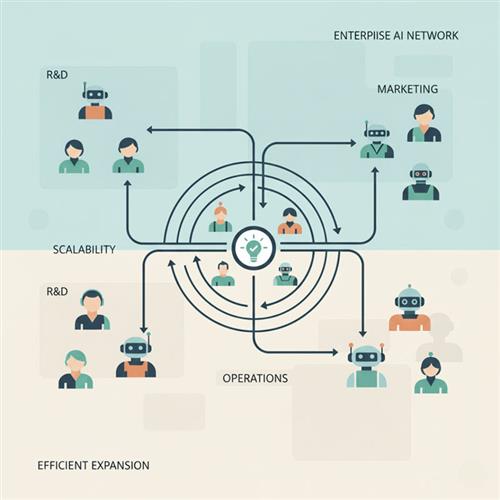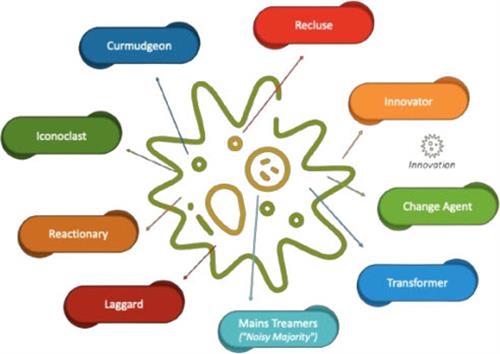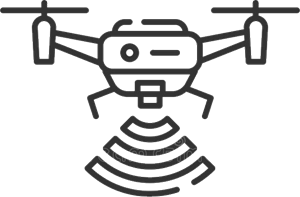The Icarus Paradox and Business Failure
Last updated: November 06, 2025 Read in fullscreen view
- 18 Oct 2020
 How to use the "Knowns" and "Unknowns" technique to manage assumptions 38/1089
How to use the "Knowns" and "Unknowns" technique to manage assumptions 38/1089 - 01 Oct 2020
 Fail fast, learn faster with Agile methodology 24/1047
Fail fast, learn faster with Agile methodology 24/1047 - 14 Oct 2021
 Advantages and Disadvantages of Time and Material Contract (T&M) 22/865
Advantages and Disadvantages of Time and Material Contract (T&M) 22/865 - 13 Dec 2020
 Move fast, fail fast, fail-safe 20/323
Move fast, fail fast, fail-safe 20/323 - 06 Feb 2021
 Why fail fast and learn fast? 20/451
Why fail fast and learn fast? 20/451 - 18 Aug 2022
 What are the consequences of poor requirements with software development projects? 20/274
What are the consequences of poor requirements with software development projects? 20/274 - 01 Mar 2023
 Bug Prioritization - What are the 5 levels of priority? 18/236
Bug Prioritization - What are the 5 levels of priority? 18/236 - 23 Sep 2021
 INFOGRAPHIC: Top 9 Software Outsourcing Mistakes 17/439
INFOGRAPHIC: Top 9 Software Outsourcing Mistakes 17/439 - 10 Nov 2022
 Poor Code Indicators and How to Improve Your Code? 16/231
Poor Code Indicators and How to Improve Your Code? 16/231 - 19 Oct 2021
 Is gold plating good or bad in project management? 15/816
Is gold plating good or bad in project management? 15/816 - 19 Apr 2021
 7 Most Common Time-Wasters For Software Development 14/556
7 Most Common Time-Wasters For Software Development 14/556 - 08 Oct 2022
 KPI - The New Leadership 12/603
KPI - The New Leadership 12/603 - 31 Oct 2021
 Tips to Fail Fast With Outsourcing 12/392
Tips to Fail Fast With Outsourcing 12/392 - 10 Dec 2023
 Pain points of User Acceptance Testing (UAT) 11/452
Pain points of User Acceptance Testing (UAT) 11/452 - 03 Oct 2021
 Five long-lasting trends in Chinese Marketing 11/378
Five long-lasting trends in Chinese Marketing 11/378 - 05 Jan 2024
 Easy ASANA tips & tricks for you and your team 10/201
Easy ASANA tips & tricks for you and your team 10/201 - 11 Jan 2024
 What are the Benefits and Limitations of Augmented Intelligence? 10/478
What are the Benefits and Limitations of Augmented Intelligence? 10/478 - 28 Dec 2021
 8 types of pricing models in software development outsourcing 10/437
8 types of pricing models in software development outsourcing 10/437 - 17 Feb 2022
 Prioritizing Software Requirements with Kano Analysis 10/304
Prioritizing Software Requirements with Kano Analysis 10/304 - 12 Mar 2024
 How do you create FOMO in software prospects? 9/167
How do you create FOMO in software prospects? 9/167 - 14 Mar 2024
 Why should you opt for software localization from a professional agency? 6/140
Why should you opt for software localization from a professional agency? 6/140 - 26 Dec 2023
 Improving Meeting Effectiveness Through the Six Thinking Hats 6/254
Improving Meeting Effectiveness Through the Six Thinking Hats 6/254 - 06 Nov 2019
 How to Access Software Project Size? 6/249
How to Access Software Project Size? 6/249 - 01 Aug 2024
 Red vs. Blue Oceans in Software Development 5/200
Red vs. Blue Oceans in Software Development 5/200 - 15 Aug 2025
 Quantum Technology: Global Challenges and Opportunities for Innovators 4/100
Quantum Technology: Global Challenges and Opportunities for Innovators 4/100
Do you know the tale of Icarus? Icarus was a figure in Greek mythology who fashioned some wings out of feathers and beeswax to escape an island. So enamored of his newfound ability to fly, Icarus ignored warnings not to fly too close to the sun. Upon getting close to the sun, the beeswax melted, his wings fell off, and he plummeted to his death.
The Icarus paradox is a phrase coined by Danny Miller in his 1990 book by the same name, referring to the phenomenon of businesses failing abruptly after a period of apparent success, where this failure is brought about by the very elements that led to their initial success. Successful companies often fail due to their strengths and past victories, which engendered over-confidence and lulled them into complacency. The characteristics that drove their success, such as tried-and-true business strategies, dauntless management, signature products, and the reciprocal action, when employed in excess may ultimately lead to declining sales and profits and even bankruptcy.
Miller explains that success seduces companies into failure through fostering overconfidence, complacency, specialization, exaggeration, dogma, and ritual. Most successful firms owe their fortune to a unique competitive formula, and as the company continues to grow, the manager's confidence in this winning formula is bolstered. However, this attitude is unsustainable in the long run, as they become unable to keep up with the threats of new competitors, changing consumer demands, newly developed business models, and changes in the external environment.
In a 1992 article, Miller noted that successful companies tend to fail because of their strengths and past victories, which causes over-confidence and lulls them into complacency. The characteristics that drove their success such as tried-and-true business strategies, dauntless and self-assured management, and the overall combination of all these elements when done in excess may ultimately lead to declining sales and profits and even bankruptcy. This happens as managers make unwise decisions based on past strategies that they mistakenly believe will always be relevant and companies exploit as much as possible the strategies that contributed to their success, concentrate their focus on the products that launched their brand and become blinded to changes in the external business environment.
- The failure of the very wings that allowed him to escape imprisonment and soar through the skies was what ultimately led to his demise.
- Most successful firms owe their fortune to a unique competitive formula.
- As the company continues to grow, the manager’s confidence in this winning formula is bolstered.
- People tend to take credit for positive outcomes and attribute negative outcomes to external factors.
- There are perils associated with following a certain system, even a winning one, for too long.
- Other business activities such as marketing and finance were deemed unimportant as long as they were technologically up-to-date.
- In many industries, extremely successful businesses often face problems maintaining their success. Of the companies in the 1966 Fortune 100, 66 no longer existed by 2006. Fifteen still existed but were no longer on the list, and only 19 remained on the list.
- Standard economic theory explains the high rate of failures as an inevitable result of companies taking rational risks in the face of uncertain situations.
Case Study: Why Fiverr’s Freelance Empire Self-Destructed



































 Link copied!
Link copied!
 Recently Updated News
Recently Updated News